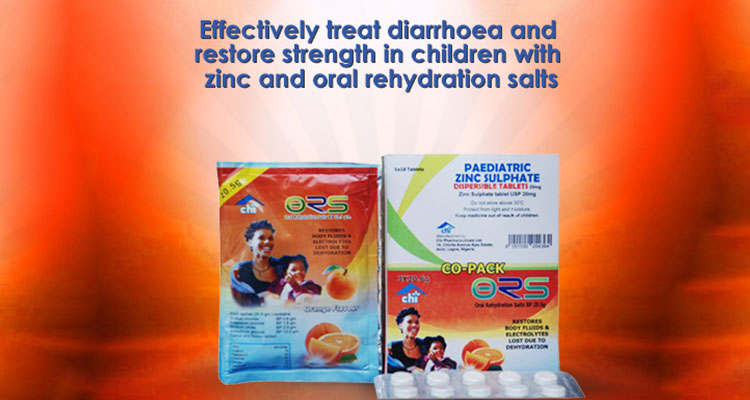Diarrhoeal diseases are a leading cause of childhood morbidity and mortality in developing countries, and an important cause of malnutrition. When a child is suffering from diarrhoea, the first call of action will be to replenish the fluids they lost as quickly as possible. Since diarrhoea causes the body to lose essential fluids and minerals, it is recommended that children drink lots of liquids such as rehydrating solutions.
Sugary drinks like soft drinks or soda, juice etc is not recommended for rehydrating a child with diarrhoea. This sickness usually passes within 5 to 7 days and rarely lasts longer than two weeks. While waiting for diarrhoea to pass, you can make the uncomfortable feeling easy for your child using points outlined below.
* Drink fluids
It’s important to drink plenty of fluids to avoid dehydration, frequently give them small sips of water whether they vomit or not. It ideally should be liquids that contain water, salt and sugar.

Tea, fruit juice or fizzy drinks should be avoided as they can make diarrhoea worse in children.
* Oral rehydration solutions
Since many diarrhoeal deaths are caused by dehydration, World Health Organisation highly recommends using the improved ORS solution which has been developed and is called reduced (low) osmolarity ORS solution, this new ORS solution reduces the incidence of vomiting by 30% and stool volume by 20%.
As a guide, after each loose stool, give: children under 2 years of age: 50-100 ml (a quarter to half a large cup) of fluid; children aged 2 up to 10 years: 100-200 ml (a half to one large cup). Rehydration solutions usually come in sachets available at pharmacies without a prescription. They are dissolved in water, and replace salt, glucose and other important minerals that are lost if you’re dehydrated.
If a child vomits, wait 5-10 minutes and then start giving ORS solution again, but more slowly.

* Give supplemental zinc
Zinc can be given as soon as diarrhoea starts, to also reduce the severity of the illness as well as the risk of dehydration. By continuing zinc supplementation for 10 to 14 days, the zinc lost during diarrhoea is fully replaced and the risk of the child having repeat diarrhoea in the following 2 to 3 months is reduced.
CHI Pharmaceuticals Zinc & ORS is a WHO-UNICEF recommended treatment for diarrhoea in children, see more HERE.
* Continue to feed the child, to prevent malnutrition
Food should not be stopped; the aim is to give as much nutrient rich food as the child will accept. When food is given, sufficient nutrients are usually absorbed to support continued growth and weight gain. Feeding also speeds the recovery of normal intestinal function, including the ability to digest and absorb various nutrients.
In general, foods suitable for a child with diarrhoea are the same as those required before the illness. Food given should have a high content of energy and provide adequate amounts of essential micronutrients. They should be well cooked, and mashed or ground to make them easy to digest. Meat, fish or egg should be given, if available. Foods rich in potassium, such as bananas, coconut water and fresh fruit juice are beneficial. Eat small, light meals and avoid fatty or spicy foods.

Take the child to a hospital if there are signs of dehydration or other problems like the following
• starts to pass many watery stools;
• has repeated vomiting;
• becomes very thirsty;
• is eating or drinking poorly;
• develops a fever;
• has blood in the stool; or
• the child does not get better in three days.